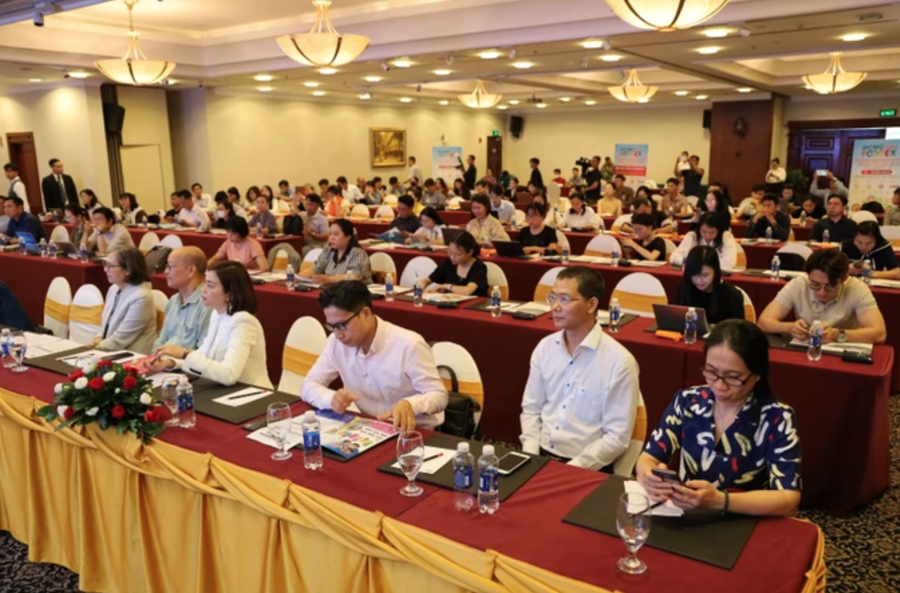Recovering and Flourishing: Ho Chi Minh City’s Food Industry in Early 2024
In the early months of 2024, Ho Chi Minh City’s food industry has shown signs of recovery and resurgence, with businesses actively producing to meet new orders, particularly in the seafood processing and manufacturing sector.
This information was shared by Ms. Ly Kim Chi, Chairwoman of Ho Chi Minh City Food and Foodstuff Association, at a press conference on the program “Ho Chi Minh City International Food and Foodstuff Exhibition 2024” (HCMC FOODEX 2024) organized by the Ho Chi Minh City Investment and Trade Promotion Center (ITPC) on April 16, 2024.

Regarding agricultural product exports, Mr. Tran Phu Lu, Director of ITPC, reported that the export turnover of agricultural, forestry, and fishery products in March 2024 reached USD 4.85 billion, a 6% increase compared to the same period last year. For the first three months of 2024, all export groups increased compared to the same period last year, leading to an export turnover growth of nearly 22%, reaching USD 13.53 billion. Growth was recorded in almost all markets.
Mr. Lu assessed that Vietnam’s agricultural industry is presenting many new opportunities, as it can leverage its export potential to major markets such as the United States, the European Union, China, and Japan due to the diversity and high quality of products like coffee, rice, and cashew nuts.
“The Ho Chi Minh City International Food and Foodstuff Exhibition 2024” (HCMC FOODEX 2024) will be held from May 15-18, 2024, and is an opportunity to support food and beverage manufacturers in introducing products with Vietnamese brands and meeting quality standards for the global market.
The trade fair will facilitate business connections and the development of agricultural export supply chains, involving businesses, agricultural product collectors, manufacturers, processors, and distributors, as well as logistics service providers. This will ensure that products meet high-quality and safety standards at competitive prices in the international market, contributing to the sustainable development of the national economy.
However, Mr. Lu emphasized that Vietnam will also face challenges in the near future. Joining FTAs attracts FDI but also creates competitive pressure from foreign companies. High-quality standards and environmental requirements are challenges, as well as protectionism and the need to invest in technology to enhance competitiveness in the global market.
Reflecting feedback from industry businesses, Ms. Chi added that there are still difficulties for food and beverage enterprises. Currently, some major export markets for the food and beverage industry, such as the EU, have issued warnings about the need for products to meet green criteria for export to their markets.
In addition, challenges in logistics have led to increased transportation costs for businesses, while the prices of imported raw materials have also risen continuously, while businesses cannot increase their output.
Therefore, the trade fair will also support businesses in connecting for trade, accessing information, and developing strategies for adopting innovative machinery and advanced technologies in the production process, enhancing competitiveness, product quality, and expanding domestic and export markets.
With abundant raw materials, the food and beverage industry still has many opportunities and growth potential. Vietnamese agricultural products and processed food are now present in over 190 countries and territories. Many industries in this sector have contributed more than USD 1 billion to annual export turnover, such as fruits, vegetables, rice, cashew nuts, coffee, and shrimp.















